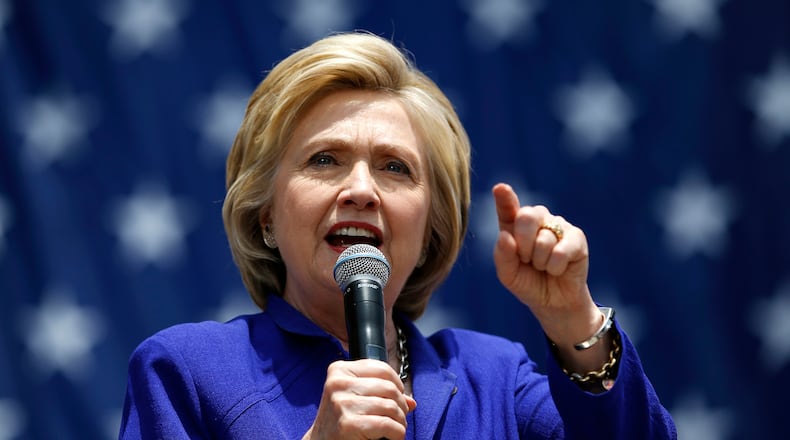Hillary Clinton claimed the Democratic Party's nomination after winning a trove of delegates across six states Tuesday, securing more than enough support to fend off Vermont Sen. Bernie Sanders and become the first woman in American history to chosen to become a major party's pick for president.
If the victory seemed anticlimactic, it was because The Associated Press and the television networks reported Monday she had won over enough party superdelegates who were previously uncommitted to put her over the top. Her victories Tuesday just widen her lead.
"It may be hard to see tonight, but we are all standing under a glass ceiling right now. But don’t worry. We’re not smashing this one," she told supporters in Brooklyn. "Thanks to you, we’ve reached a milestone. The first time in our nation’s history that a woman will be a major party’s nominee."
Clinton now hopes to turn her attention toward a five-month campaign against Republican Donald Trump, who locked up his party’s nomination more than a month ago.
But Sanders has vowed to fight on, claiming he poses the bigger November threat to Trump. He's set his sights on swaying enough superdelegates who have pledged their support to Clinton to flip sides; none of the nearly 600 in Clinton's camp have switched so far.
In a speech early Wednesday, he promised again to take his campaign to his party's convention in Philadelphia next month.
“We will continue to fight for every vote and every delegate we can get," he said.
Clinton's historic speech comes on a day when voters in six states headed to the polls. She won the primaries in California, New Jersey, New Mexico and South Dakota, while Sanders took Montana and North Dakota's caucus.
The biggest prize of the day by far is California, a state that Clinton won in 2008 in the contest against Barack Obama. Sanders had staked his campaign on winning the state, and a Clinton loss there would have revived questions about her strength as a candidate – and bolster his argument to stay in the race.
Waiting in the wings is President Barack Obama, who is said to be eager to endorse Clinton once Tuesday's vote is in the rearview mirror. Obama has not shied from criticizing Trump, but he's had to stay on the sidelines of the Democratic race while waiting for the primaries to play out.
Trump, meanwhile, launched into a lengthy critique of Clinton's record at an event Tuesday night in Briarcliff Manor, N.Y., making an appeal to Sanders backers “left out in the cold by a rigged system.”
About the Author
The Latest
Featured




